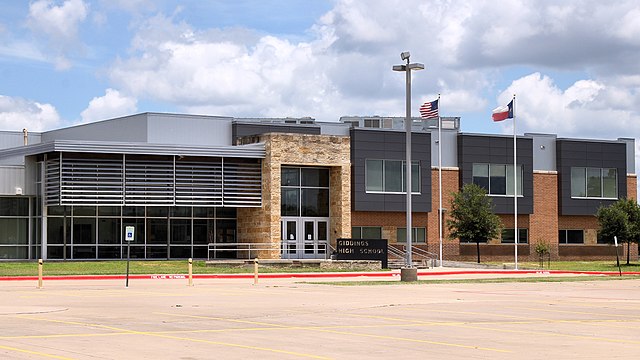
A house bill has been filed in the Texas Legislature that would seek to lower the effects of recapture, also known as the Robin Hood law. House Bill 620, written and filed by State Representative Matt Shaheen (R-Collin County), aims for districts to collect more of the local property taxes to finance their schools.
The Robin Hood law is where the state of Texas recaptures excess local property tax from wealthier school districts that are able to pay their entitlement funding and distributes it to school districts that cannot.
School districts have an entitlement of how much funding they need based on student population, special needs programs, and a variety of stuff a school requires. If a school district is able to use their local property tax dollars to meet that entitlement and there is excess, then that excess is given to the state to redistribute to school districts that are not able to pay their entitlement. That is where the state aid comes in.
Recapture came out of a period of growing frustration in the 1980s rose across Texas because districts with higher property value were able to fund better schools, education curricula, and teachers. School districts in areas that did not have high property value did not have the funding necessary to finance better schools and education.
The “Texas Supreme Court ruled that the disparities in taxable values used to fund public education was unconstitutional.” From there, in the 1990s, the Texas legislature passed a law that allowed the state to take the excess revenue from wealthy school districts after they paid their entitlement, and redistribute it to school districts that could not afford what was necessary. This became known as the Robin Hood law since the state took from the rich to give to the poor. However, there has been frustration over recapture.
Over the past three decades property values have risen throughout Texas, but the basic allotments for schools have slowly grown. In fact, the basic allotment for students has not risen in four years since 2019. It currently sits at $6,160 per student and has not been adjusted for inflation.
Additionally, property values, of course, have risen across the state as more business comes to Texas, factories, oil, etc. and thus more and more districts will be considered property wealthy because they’ll be able to pay their basic allotment that’s not rising very much.
Thus the state grows its budget from local property taxes but schools are still not being financed with the growing educational needs that are rising as well.
“As recapture has grown, its utility has quietly shifted; today, recapture is one of the state’s largest revenue sources, and the billions of dollars the state collects in recapture payments are used to balance the state budget,” stated the Texas School Coalition.
School funding is formula driven and although there are property-wealthy areas around Texas that pay the most in recapture funds, that does not mean that they are meeting the growing educational needs of their school district. “School districts worry their swelling bills could impact how they operate as inflation rises and they juggle security and technology upgrades, as well as the high price of catching students up…” reported the Dallas Morning News.
Another issue with recapture is the areas that pay the most in recapture, such as Austin and Dallas which have high property value, many of their students come from low-income families.
Additionally, a huge issue with recapture is that the basic allotment for school funding has not grown since 2019 and has not been adjusted for inflation.
What this means is, as property values rise in Texas, then more school districts are able to pay their entitlement funding and then give their excess to recapture. The more districts are able to have excess property tax dollars, the more the state’s financial obligation to the public school system is lowered, increasing their budget since they are still taking those excess dollars.
Two different reports, one by the Texas School Coalition and another by EveryTexan.org, have different views about recapture.
The Texas School Coalition sees recapture as an issue that prevents school districts from accessing funds from excess local property taxes to meet the growing needs in public education.
EveryTexan.org reports that focusing on recapture misses the real problem in public school funding. To them, the problem is that the basic allotment for public schools is not rising. Recapture, in their report, allows equitable distribution to keep educational funding equalized across the various school districts in the United States. The real problem, they state, is that the basic allotment needs to be raised.
“The basic allotment is the tide that raises all ships. Districts paying recapture are able to keep more of their property tax revenue locally when the basic allotment is increased, and all districts have more resources.”
The Texas School Coalition concurs with this in its proposed solutions. Both believe that the basic allotment needs to be replaced. What that will do is increase the state’s obligation to finance schools when they cannot make up that entitlement.
Whether the Robin Hood Law should be repealed or not, it seems that one issue that must be changed is raising the basic allotment for public schools.